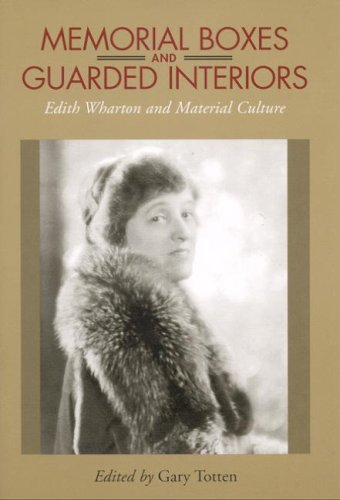

Most ebook files are in PDF format, so you can easily read them using various software such as Foxit Reader or directly on the Google Chrome browser.
Some ebook files are released by publishers in other formats such as .awz, .mobi, .epub, .fb2, etc. You may need to install specific software to read these formats on mobile/PC, such as Calibre.
Please read the tutorial at this link. https://ebooknice.com/page/post?id=faq
We offer FREE conversion to the popular formats you request; however, this may take some time. Therefore, right after payment, please email us, and we will try to provide the service as quickly as possible.
For some exceptional file formats or broken links (if any), please refrain from opening any disputes. Instead, email us first, and we will try to assist within a maximum of 6 hours.
EbookNice Team

Status:
Available4.4
20 reviewsIn Edith Wharton’s works, references to architecture, interior decoration, painting, sculpture, and fashion abound. As these essays demonstrate, art and objects are for Wharton evidence of cultural belief and reflect the values, assumptions, and customs of the burgeoning consumer culture in which she lived and about which she wrote. Furthermore, her meditations about issues of architecture, design, and decoration serve as important commentaries on her vision of the literary arts.
In The Decoration of Houses she notes that furniture and bric-à-brac are often crowded into a room in order to compensate for a "lack of architectural composition in the treatment of the walls," and that unless an ornamental object "adequately expresses an artistic conception" it is better removed from the room. These aesthetic standards apply equally to her construction of narratives and are evidence of a sensibility that counters typical understandings of Wharton as a novelist of manners and place her instead as an important figure in the development of American literary modernism.
Essays in this collection address issues such as parallels between her characters and the houses they occupy; dress as a metaphor for the flux of critical fashion; the marketing of Wharton's work to a growing female readership ; her relationship to mass culture industries such as advertising, theater, and cinema; the tableaux vivant both as set piece and as fictional strategy; the representation of female bodies as objets d’art; and her characters’ attempts at self-definition through the acquisition and consumption of material goods. All of Wharton’s major novels—The House of Mirth, The Fruit of the Tree, Ethan Frome, The Custom of the Country, Summer, The Age of Innocence, and Twilight Sleep—as well as her short stories, criticism, and essays are explored.
Gary Totten is Assistant Professor of English at North Dakota State University. His essays on Wharton and her contemporaries have appeared in American Indian Quarterly, American Literary Realism, College Literature, Dreiser Studies, and MELUS.